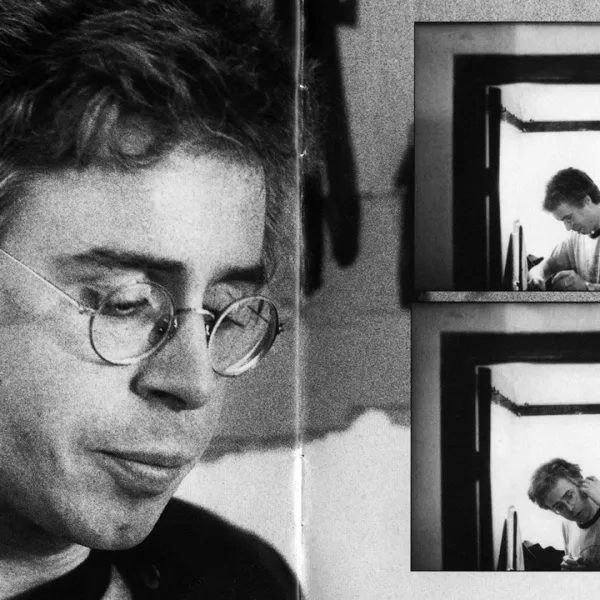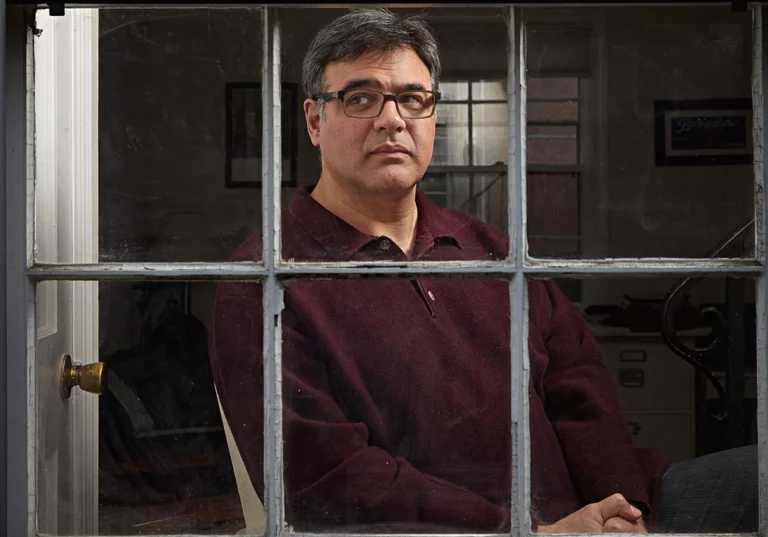This is an episode of Reality Asserts Itself, produced on January 18, 2017. On Reality Asserts Itself, Nina Turner, leading Bernie Sanders surrogate during the primary, tells host Paul Jay that when she moved her support from Clinton to Sanders, she was accused of betraying the party that she should be grateful for – and she answered: “I’m not on the plantation anymore”.
PAUL JAY: Welcome back to Reality Asserts Itself on The Real News Network. I’m Paul Jay. We’re continuing our discussion with Nina Turner, a former Ohio State Senator, college professor, public speaker, frequent media commentator and author, and she rose to prominence in the 2016 Democratic Party primary, where she became the most recognized face of the Bernie Sanders campaign, after Bernie Sanders. And Nina joins me in the studio again. Thanks for joining us.
NINA TURNER: It’s a pleasure.
PAUL JAY: So, we’ll pick up our discussion, as an Ohio State Senator, you were not afraid of taking on various powers that be. One of the bills you’re known for is, at least nicknamed “The Erectile Dysfunction Bill”. What’s that all about?
NINA TURNER: Yes. It was really my pushback against the Heartbeat Bill, which unfortunately my Republican colleagues pushed in this General Assembly and they did pass a bill that, after 20 weeks, you know, abortions are not allowed in Ohio, and not even for incest or rape cases. Just ridiculous. But, you know, when I was in the General Assembly in 2012, I pushed back on those kinds of bills and I thought to myself, wow, I’m not here to talk about education or small businesses or infrastructure. I am here to regulate a man’s health. And so I did introduce the Erectile Dysfunction Bill. Needless to say, it didn’t pass, but I pushed that bill to really draw attention to the fact that it is crazy, insane and vitally unfair to make women have to jump through hoops for their reproductive healthcare. But in my bill a male would have to have a signed affidavit by his significant other attesting to the fact that he has problems. Have a sex therapist talk to him about those problems to determine whether they’re physical or psychological. Take a cardiac stress test every 90 days. And seriously, Paul Jay, those pills have some health side effects. I want to make sure that the man is healthy and that he is fully cognizant of what he’s doing. That bill did get international attention. As a matter of fact, there were women legislators across this country that picked up on that patter and I think there were about six of us. And I actually made contact with them, but really just to say that we have real issues that we should be working on as members of the legislature, and regulating women’s reproductive health is not one of them.
PAUL JAY: Trump won Ohio, right?
NINA TURNER: He did, by about eight points.
PAUL JAY: And I understand why the Clinton campaign didn’t win. I understand, in defending the status quo, which is what Clinton was, why working class people, especially poor, lower wage scale, the working class shifted — not all, but a significant number shifted to Trump — and he, I think, outright won over workers making more than $50,000 dollars, a lot of union members in Ohio. But I understand the Clinton campaign not understanding or not knowing how to deal — or couldn’t because of her defense of the status quo, her connections with Wall Street. But why does the Ohio Democratic Party not do better in rural small town, and even beginning now, even amongst some urban workers? What’s the disconnect there for Ohio Democrats? ‘Cause you would think that kind of a state should be — neither of us are enormous fans of corporate Democrats — but they shouldn’t be voting, one would think, Republicans, like they do.
NINA TURNER: Well, Ohio is the quintessential swing state. I mean, we’re called that for a reason in presidential elections years, we really swing. I mean, 2008 and 2012, this is the state that voted for President Barack Obama. I remember in 2008 when Ohio was called, everybody knew that it was over because no Republican has won the White House without winning Ohio. And certainly Ohio continues that tradition as we see in 2016. It is really a disconnect that has gone on between the rhetoric of my party and the reality of that party. And some of it though, in all fairness, does have to do with redistricting. For Democrats to lose in 2010, it mean, it’s never good to lose, but to lose in 2010 set the Democratic party back for at least a decade, maybe even two decades, when you lose that way. And whoever controls the pain(?), controls a lot of the legislative realities both state legislative districts, but also the congressional districts as well. And so we see the bleeding of that. But we lost our way in terms of really connecting and communicating with working class people across the state. And not just only Reagan Democrats, but as we noticed in this presidential election, even people of color, the so-called Obama Coalition, did not show up at the same level that it did in 2008, and also in 2012. But we really have to start to connect with people’s hearts more. We gotta get out there and talk about the problems and the issues that matter to them.
PAUL JAY: And the majority of the Trump vote, I think to some extent — this disenchanted section of the working class and poor that voted for Trump — to some extent, that gets a little exaggerated in the sense that the majority of the Trump vote, if I understand it correctly, are traditional Republican voters. And most of them just want lower taxes and they own stuff and they’re doing well enough and they want to keep their stuff and they don’t anyone to take their stuff away from them. But amongst that section of the working class and poor, the disconnect, like the ability for Republicans to make an argument that free competition and free markets and all of this is somehow going to solve the problem facing workers. It seems like such a failure to explain what the issues are, but part of that is, is that when push comes to s shove, when the Democrats actually govern, the character of the Democratic Party is, in fact, you know, on a national scale, Finance really controls the machinery of the party, and on the local scale, we see it in Baltimore, developers and big money calls the tune.
NINA TURNER: That’s right, everywhere. I mean, and this was a non-establishment year and the Democrats’ biggest failure, both on the state party level and the national level, is that we refused to hear the cries of the people, the coalition of the forgotten, basically saying, “We’re not gonna take this anymore. We mad as hell and we’re not gonna take it anymore. And we’re gonna vote either by not voting, or we’re gonna vote for Mr. Trump.” Even though in some ways, a lot was being propagated, and we certainly can see by the choices in his cabinet. I mean, he picks a guy that is anti-labor in every way, believes that machines matter more than people, does not believe in lifting the minimum wage, but this is the person that Mr. Trump is putting forth for his Labor Secretary. And then he also wants… You know, he has nominated a gentleman who doesn’t believe climate change is real. So, a lot of it is the antithesis of what people were saying that they wanted, but Democrats, establishment Democrats, were not listening. And it really shamed a lot of people. I believe many of the polls were wrong because we made it unbearable for folks who were leaning in that direction to say it out loud, because you want to lambast them if they say it. If we had created an environment again of, seek ye first to understand and then to be understood, I think polling in this country would have been more realistic to what actually happened in 2016. Democrats have to get it together and it’s not enough to continue to blame the Russians. You can’t keep blaming the Russians. We lost. We got beat like a drum.
PAUL JAY: When the election season began, you initially were going to endorse Hillary Clinton — I think this is before Bernie entered the race?
NINA TURNER: It was. I had done some things for Ready for Hillary — I was asked by Ready for Hillary, this was the latter part of 2014. Like what the heck, you know, let’s do it. I hope she does run. This is not about her getting into the race, so yes, I did.
PAUL JAY: And Bernie gets into the race and you change your mind.
NINA TURNER: Oh my God, you know, just listening to him and I’ll never forget my husband, he’s saying, “Baby! Did you hear… do you know about this Bernie Sanders? This Senator Bernie Sanders?” And I say, “Yes, I do.” He say, “No, but do you really know about him? I think you should really check him out.” And I did.
PAUL JAY: And your husband’s a retired cop.
NINA TURNER: He is. He is. In a deeper way–
PAUL JAY: And your son’s a cop.
NINA TURNER; Yes. And I did, I did take a deeper dive and my husband, I’ll never forget he said, “This Senator has the same righteous indignation as you have.” And when I really started to go deep and look at, oh my God, at the age of 21, he’s at the University of Chicago fighting against, you know, racism and discrimination and housing and being chained to an African-American woman, that he was one of very few white elected folks who supported just–
PAUL JAY: Now, given earlier in the interview you went through all the things that Bill Clinton had done as President that did severe harm to African-Americans. Why were you willing to endorse her?
NINA TURNER: You know, I didn’t necessarily endorse, but I was on the Ready for Hillary. I got out there, “Let’s encourage her to run.” I mean, she’s not her husband. And in some ways that was unfair, in other ways, to the extent of the Secretary brought out her husband’s record, made it fair game. Then you can’t have all the good and none of the bad. The fact that she was out there pushing for the Crime Bill, she wasn’t just the First Lady in the back. She actually lobbied for the Crime Bill. She said the words, you know, “We had to bring them to heel,” in reference to African-American youth. So, at the same time the Democrats wanted to push a good economy under the Clinton Administration, they wanted all of the good and none of the bad. You can’t have it both ways. You gotta take the bitter with the sweet, so to speak. But that doesn’t mean that she should not have run. In any many ways looking back on this, one of the biggest flaws of the Democratic Party, is that they shut out other folks from running. And they may never want to say that, but that is the truth. That is what is really the reality.
PAUL JAY: I guess what I’m getting at is, it seems to me that when, Get Ready for Hillary, it’s the Democratic Party thing to do. And they come and talk to you, “I’m a Democrat…”
NINA TURNER: I will admit, absolutely, it was.
PAUL JAY: And somewhere… partly the endorsement of Bernie, but also, I guess I’m asking the experience itself, does it kind of flip that, “Hey, hang on. Maybe this loyalty,” like you said earlier in the beginning of the interview, “Not blind loyalty.” Like, you start to see through that.
NINA TURNER: And I did. Everybody expected me to endorse… “How don’t you endorse…? You get out there…” But when your eyes are open and when you have new information, you’ve got to critique a situation in a different way. And I wasn’t willing to give up my integrity and all the things that I really have fought for in my political career, for convenience. And make no mistake about it, it was very inconvenient in terms of my politics, in terms of — I was threatened along the way, “You’ll never run for office again. We’re gonna get you. This is not over. You betrayed…” You know, all of the negative and wicked things, but this is America. You want to talk about choice, this is not just about reproductive choice, but don’t I have a choice? I have a decision? I am a freethinking human being in America and I have a right to have choice. I’ll never forget when the word got out that I was formally endorsing Senator Sanders and I was at a Planned Parenthood event in Cleveland, and the President of Planned Parenthood, Paul, called me up and she said, “Nina. My phone has been ringing off the hook. About 50 people called me. Is it true? Are you endorsing Senator Bernie Sanders?” And I said, “Absolutely true.” She said, “I’m going to do everything I can to protect you. And I hope that you don’t get booed.” ‘Cause I had a role, I had to introduce someone that was on the program in Cleveland. And I said, “I wish they would boo me in my city.” But think about this, at a Planned Parenthood event where we’re talking about choice, we’re talking about reproductive choice, and we got folks in the room who want to deny me my choice. And a woman came up, and this came out on WikiLeaks a little bit, and she told me what a disappointment I was. And how I’m betraying the Clintons. And I should be ashamed of myself. And I told this woman, I said, “I’m not on the plantation anymore. And my ancestors died for my right to be a thinking and free woman. And I’ve thought about this, and this is who I’m endorsing.” It had gotten so intense that two people had to separate us. But she came and got in my face to tell me how ashamed she was. And she said, “After all we’ve done for you.” And I interpreted that as, “Black girl, after all we’ve done for you, us good liberal white folks. And you turn your back.”
PAUL JAY: Yeah, we let you in the club.
NINA TURNER: We let you in. Yeah, and this came from Democrats not from Republicans. And that’s why, when people hear me just in soundbites, being very critical. I am critical of a party that enjoys the majority of the African-American vote, yet there’s never been a black woman governor in this country, under Democrats.
PAUL JAY: When you made this decision to endorse Bernie, you know what you’re getting into. You’re savvy, you’re a politician, you know what’s happening–
NINA TURNER: Out of the frying pan and into the fire.
PAUL JAY: And you gotta know that this is not the best career move, and certainly, at that time, now Hillary won and it did get close later on, but when you got in, nobody thought Sanders had a chance.
NINA TURNER: It was a game-changer for the Sanders campaign. And if you ask Senator Sanders or even his campaign manager they would tell you that. When the word hit, Lawrence O’Donnell, I’ll never forget, I was getting on a an airplane and they said, “We had an interview – breaking news, breaking news.” And I’m trying to get on a plane. I’m like, “You guys, they’re gonna close the doors.” But Lawrence O’Donnell, my first real interview about this happened on a the airplane right before they were closing the doors, of Nina Turner, they said, “Switches,” which I resent that, to this day. Not just — Lawrence didn’t say it — but that was the media narrative, “She switches.” But that is how important it was. Because at that time the Senator did not necessarily have prominent–
PAUL JAY: It was important to his campaign. But, I’m sure people told you–
NINA TURNER: It was hell for me…
PAUL JAY: It was political suicide for you.
NINA TURNER: Oh no, the Chair of the Democratic Party, who I admire, have lots of respect for, said to me, “Do you have to do this? You know that. I mean, something could happen. And it’s gonna be hard for you.” But I wanted to sleep at night and I wanted to be able to look in the mirror. And when I juxtaposition all of the things that Senator Bernard Sanders, the Democratic socialist from Vermont was fighting for and speaking up for, where he called out Wall Street, where he said that working class people in this country deserve better than what they’d gotten. That millionaires and billionaires can’t have it all. When he talked about the … violence, I did understand it, fully, clearly that there was going to be consequences for me.
PAUL JAY: And at the DNC convention in Philadelphia, when Bernie Sanders asked you to be one of the people that put him into nomination, the DNC, the Clinton campaign, they decided to punish you for this.
NINA TURNER: They did. They did. They told Senator Sanders that it wasn’t gonna happen. They wouldn’t even allow Senator Sanders to show a video that had my image in it. That’s how deep it had gotten. And I’m finding out all of this stuff, after the fact.
PAUL JAY: They want to prove this is political suicide.
NINA TURNER: Oh yeah. Oh, no. They’re going to public shame me. And all of this happened at the same time that they were trotting out Mothers of the Movement. You know, black women who had lost their sons or their daughters through police encounters. That’s light, I probably shouldn’t call it an encounter, but through police, the Mothers of the Movement they tried to out black women. Cecil Richards the President of Planned Parenthood, I’ll never forget, she gave a speech about how Secretary Clinton was going to give voice to women. Yet my voice was cut out and nobody, I shouldn’t say nobody, ’cause the Berniecrats went crazy. But I’m just saying, even people who supported the Clintons should have said, “That’s wrong.” And if they really wanted to build a bridge, me on the stage for two minutes talking about Senator Bernie Sanders, would have really brought the Berniecrats and given them something to hope for. But they denied me of that…
PAUL JAY: To prove the point. There are consequences.
NINA TURNER: “You will be punished.”
PAUL JAY: And I think if they let Tulsi Gabbard come and do it, so this is something, particularly about a black woman, “We let you in—”
NINA TURNER: There it is.
PAUL JAY: “…and you’re gonna be punished for what you did.”
NINA TURNER: But look at the contradiction of what you just said. The very community or the livelihood of the Democratic Party will rise and fall. Who, in this election cycle, Secretary Clinton got 94% of the black women vote, a little over 80% of the black male vote, but yet it is totally acceptable, in the confines of that, to try to cut down somebody that has been a loyal Democrat and my only crime was to be the fiercest surrogate for Senator Bernie Sanders, but I’m still a Democrat in good standing, still believe in this party. I’m still loyal to this party, but I’m not blindly loyal. And I did no more or less than Congresswoman Tulsi Gabbard or Ben, you know my brother, Ben Jealous, but yet they wanted to show me that there are consequences. And I do have to say an apology. I want to give a shout out to the Berniecrats who had my back. You were there and you saw the outpouring. The National Nurses United, the people like, Danny Glover and Susan Sarandon and Rosario and Shailene Woodley…
PAUL JAY: There was a rally held right in the pressroom with people with, “I’m with Nina.” In fact, most of you guys, I think ended up in The Real News–
NINA TURNER: Yeah, we did… and Tara Mosely Samples, my dear sister from Akron. And she’s on Akron city council, who was right there with me.
PAUL JAY: Should Bernie have fought that more?
NINA TURNER: He could have — in public, you mean? Because he did fight it behind the scenes. I mean, I talked to the Senator, of course, and I talked to Dr. Jane Sanders who told me that all along the way, all of the crap that the Senator had to take in this fight, the only time she really heard him raise his voice is when he was told that I would not be allowed to put his name in nomination. So yeah, he could have.
PAUL JAY: I guess they put him in a position, he would have had to walk out.
NINA TURNER: Absolutely… And I respect the Senator immensely and there is nothing in the world that can change that. I wished it had have turned out a different way, certainly the Clinton camp did not have to do what they did. So, the burden falls on them. They’re the ones that created the situation. It didn’t have to happen. Because I still believe, even though I’m willing to challenge my party, I now say I’m from the Shirley Chisholm/Bernie Sanders wing of the Democratic Party. We got a whole new wing. But I still believe that the Democratic Party can be that party — in deed, not just in words, for working people in this country. We need it. We have to have it.
PAUL JAY: All right, we’re going to pick up on that in the next section of the interview. Please join us for the continuation of my interview with Nina Turner on Reality Asserts Itself, on The Real News Network.
Never miss another story
Subscribe to theAnalysis.news – Newsletter
“Nina Turner is an American politician and television personality. A member of the Democratic Party, she was a Cleveland City Council member from 2006 to 2008 and a member of the Ohio Senate from 2008 until 2014. Turner was the Democratic nominee for Ohio Secretary of State in 2014 but lost in the general election against incumbent Jon Husted, receiving 35.5 percent of the vote. Her politics have been variously described as progressive, left-wing, or far-left.”










